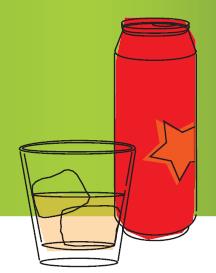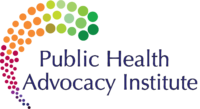Cara Wilking, J.D

Today, the Public Health Advocacy Institute (PHAI) at Northeastern University School of Law in Boston, released a report entitled Energy Drink Self-Regulation chronicling the ways in which major energy drink makers openly violate the self-regulatory guidelines issued by their own trade association, the American Beverage Association (ABA). A review of energy drink marketing, promotion, and employee recruiting materials from 2012 found that despite self-regulatory pledges to the contrary, energy drinks are promoted as mixers with alcoholic beverages and often marketed in ways that foster confusion with sports drinks. Energy drink makers have come under growing scrutiny by state and federal regulators as reports of irresponsible marketing practices and adverse health events associated with energy drink consumption have come to light. The U.S. Senate Committee on Commerce, Science and Transportation will hold a hearing on Wednesday, July 31, 2013 at 2:30 p.m. titled, “Energy Drinks: Exploring Concerns About Marketing to Youth.” Major energy drink makers were asked to submit information about marketing to youth in advance of the hearing. PHAI\’s findings reveal that regulatory oversight is needed as self-regulatory pledges are not being complied with.
Market Leader Red Bull Openly Violates ABA Marketing Guidelines
Two of the ABA’s core self-regulatory principles are to refrain from marketing energy drinks as mixers for alcoholic beverages and to not market energy drinks as sports drinks. Red Bull is the leading energy drink company. Red Bull trains its sales staff to market Red Bull as a mixer to bars and clubs, through distribution of point of sale materials like Red Bull branded mini-fridges, bar mats and neon signs, and training bartenders how to execute the “Perfect Serve” a standardized way to serve a Red Bull and vodka drink. Red Bull also trains its guerilla marketing staff, called its Wings Team, to deliver Red Bull to parties on college campuses. “Red Bull’s total disregard for its own trade associations’ marketing guidelines, exposes the guidelines as nothing more than a paper tiger and makes clear the need for real regulation in this area,” said Cara Wilking, senior staff attorney at PHAI.
The ABA Should Stop Misleading the Public
The ABA acknowledged the dangers of combining alcohol with caffeinated beverages and marketing energy drinks as sports drinks when it issued its energy drink marketing guidelines. The ABA routinely references the guidelines when energy drinks are publicly criticized. In light of this report, to continue to tout its self-regulatory guidelines for energy when its member companies so openly violate them is potentially misleading to the public and regulators. “All of the information contained in the report released today is publicly available. Even the slightest accountability measures by the ABA would have found that two of its major recommendations are not being followed,” said Cara Wilking senior staff attorney of PHAI.
- Download PHAI’s report here.
